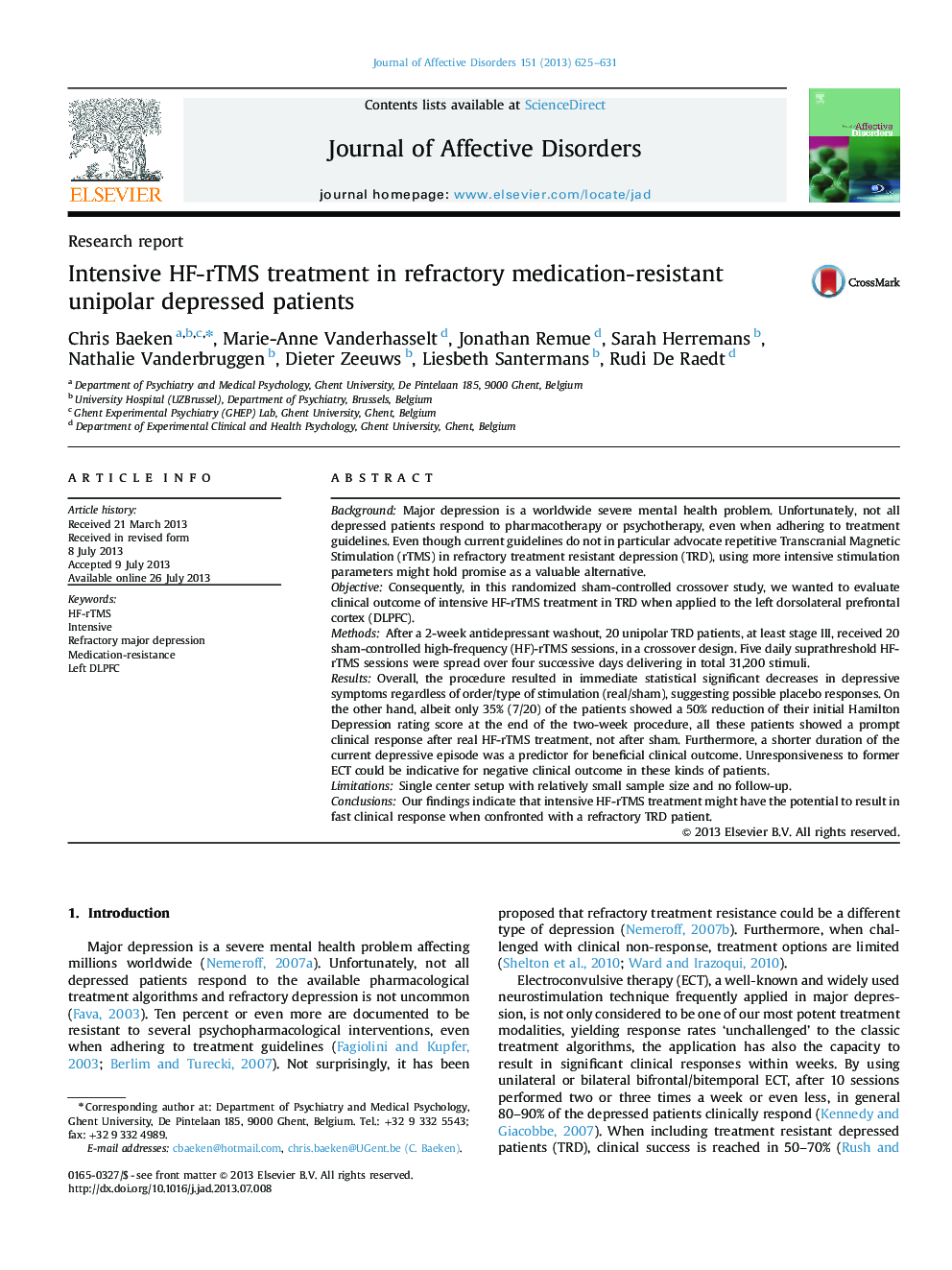| Article ID | Journal | Published Year | Pages | File Type |
|---|---|---|---|---|
| 6233942 | Journal of Affective Disorders | 2013 | 7 Pages |
BackgroundMajor depression is a worldwide severe mental health problem. Unfortunately, not all depressed patients respond to pharmacotherapy or psychotherapy, even when adhering to treatment guidelines. Even though current guidelines do not in particular advocate repetitive Transcranial Magnetic Stimulation (rTMS) in refractory treatment resistant depression (TRD), using more intensive stimulation parameters might hold promise as a valuable alternative.ObjectiveConsequently, in this randomized sham-controlled crossover study, we wanted to evaluate clinical outcome of intensive HF-rTMS treatment in TRD when applied to the left dorsolateral prefrontal cortex (DLPFC).MethodsAfter a 2-week antidepressant washout, 20 unipolar TRD patients, at least stage III, received 20 sham-controlled high-frequency (HF)-rTMS sessions, in a crossover design. Five daily suprathreshold HF-rTMS sessions were spread over four successive days delivering in total 31,200 stimuli.ResultsOverall, the procedure resulted in immediate statistical significant decreases in depressive symptoms regardless of order/type of stimulation (real/sham), suggesting possible placebo responses. On the other hand, albeit only 35% (7/20) of the patients showed a 50% reduction of their initial Hamilton Depression rating score at the end of the two-week procedure, all these patients showed a prompt clinical response after real HF-rTMS treatment, not after sham. Furthermore, a shorter duration of the current depressive episode was a predictor for beneficial clinical outcome. Unresponsiveness to former ECT could be indicative for negative clinical outcome in these kinds of patients.LimitationsSingle center setup with relatively small sample size and no follow-up.ConclusionsOur findings indicate that intensive HF-rTMS treatment might have the potential to result in fast clinical response when confronted with a refractory TRD patient.
